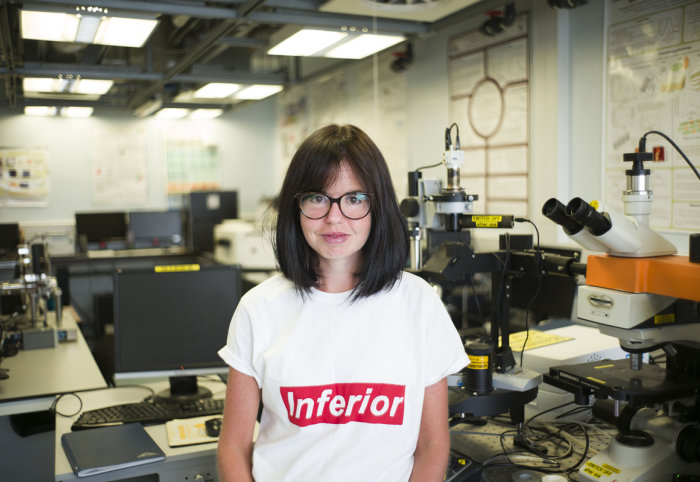Jess Wade one of Nature's 10
by Lisa Bushby

Dr Jess Wade has been recognised as one of Nature's 10 for her work boosting the profiles of scientists from under-represented groups.
CPE researcher Dr Jess Wade has been recognised as one of Nature's 10 people who mattered in 2018.
Nature’s 10 is the journal’s annual list of ten people who mattered in science this year. Their role in science may have had a significant impact on the world, or their position in the world may have had an important impact on science. In ten short profiles we reveal the human stories behind some of the year’s most important discoveries and events.
Jess is celebrated for her efforts to raise the profile of underrepresented groups in science. Her work came to public notice earlier this year when the media picked up on the hundreds of Wikipedia pages on female scientists she has written, outside of her day job at the Centre for Plastic Electronics.
Nature notes that when Jess started writing a Wikipedia page every day, she didn’t expect her efforts to earn her global attention. She was simply trying to correct the online encyclopaedia’s under-representation of women and people of colour in science. But in July, when she tweeted about a trollish comment she’d received about the work, it prompted an outpouring of support and a big boost for her quest. “That wouldn’t have happened without that one mean comment,” she says.
Jess has tackled many science-outreach projects aimed at fostering diversity. She took up her page-a-day habit after learning that 90% of Wikipedia editors are men and only about 18% of people profiled on the site are women.
She has now created about 400 pages and works with organizations to host regular "edit-a-thons" — in which people create and edit Wikipedia content with an eye to inclusivity. These have inspired similar events around the world, including some focused on other professions.
Jess' Wikipedia campaign isn’t the only thing that thrust her into the spotlight this year. In September, she spoke about her engagement work at a conference on gender at CERN, Europe’s particle-physics lab near Geneva, Switzerland. On the same day, physicist Alessandro Strumia from the University of Pisa in Italy delivered a presentation questioning women’s ability in physics and attacking policies that encourage diversity. “His presentation was totally inappropriate,” Wade says, “telling a room of mainly young woman scientists that they’d only ever achieve success in physics due to affirmative action”. She once again used social media to highlight the comments, and they were widely condemned. Strumia has been suspended from his work with CERN while an investigation is ongoing.
In December, Jess joined a group of STEM professionals in London to raise awareness of Women in STEM online.
In 2019, Jess expects to press on with her outreach, including stocking school libraries with the book Inferior by Angela Saini, which explores the harm caused by gender stereotypes. “I think diverse teams do better science,” she says. “Doing all this stuff definitely makes sure that the academic community is more robust, resilient and creative.”
Article text (excluding photos or graphics) © Imperial College London.
Photos and graphics subject to third party copyright used with permission or © Imperial College London.
Reporter
Lisa Bushby
Department of Physics